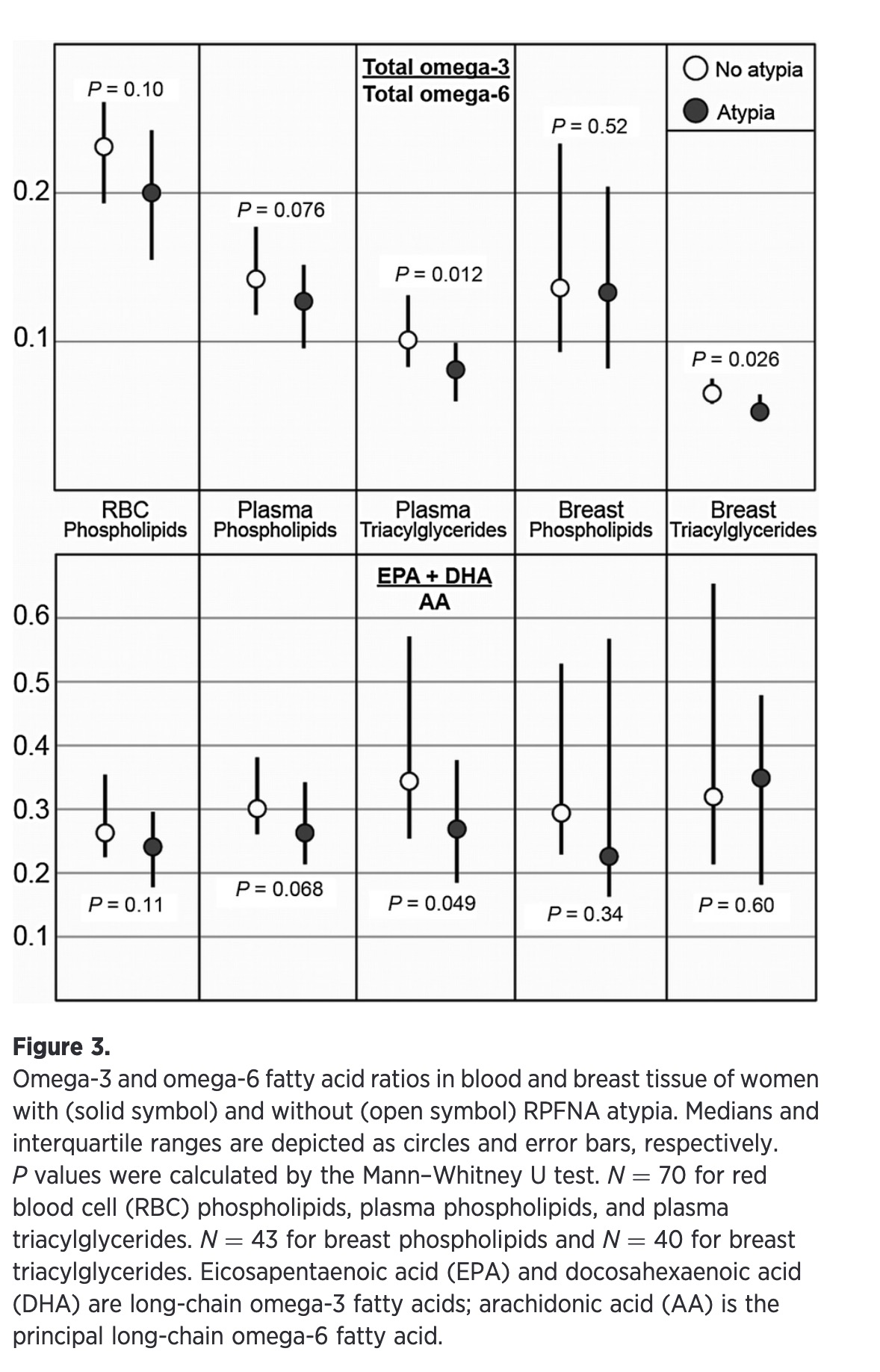Thanks for this. Very interesting results..
> !metabolic_health@dubvee.org
Moved to !metabolic_health@dubvee.org
A place to discuss metabolic health research, papers, talks, etc.
This topic can touch upon many people's personal triggers, so please be civil.
Rules
- Be nice
- Stay on topic
- Don't farm rage
- Be respectful of other diets, choices, lifestyles!!!!
- No Blanket down voting - If you only come to this community to downvote its the wrong community for you
The banner poster in high resolution can be found here
Notes:
Over the past century, consumption in the United States of omega-6 (n-6) fatty acids has increased dramatically, mostly from corn and soybean oil, whereas omega-3 fatty acid intake has remained stable (9). This high omega-6 intake relative to omega-3 fatty acids may contribute to breast cancer risk, because a low omega-3:6 ratio in tissue can create a proinflammatory milieu (5, 6) and thereby promote tumor formation and progression
Assessing this relationship is complicated by problems assessing omega-3 and omega-6 intake from food frequency questionnaires (FFQ; 16) and inconsistent results among different populations
two general conclusions and a hypothesis. First, women consuming their usual diet have a low intake of omega-3 relative to omega-6 fatty acids that is reflected in the omega-3:6 ratio in multiple tissues.
we found inverse associations between tissue levels of long-chain omega-3 fatty acids and omega-3:6 ratios and a reversible biomarker of breast cancer risk
Thoughts:
It would be reasonable to reduce or eliminate dietary omega-6 sources, such as seed oils (vegetable oils) for people who are concerned with breast cancer.
The papers make takeaway about omega-3 supplements is one approach, but I think its being indirect - either the authors believe seed oils are necessary, or they don’t want to get into a fight about removing seed oils from the diet. The advice seems backwards..
